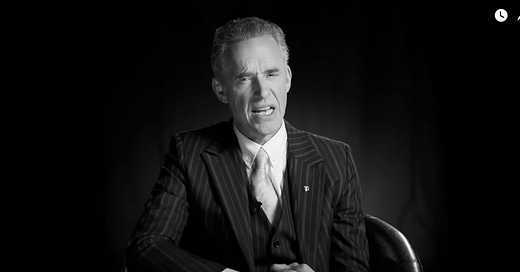In The Road to Serfdom, a founding text of neoliberal ideology, Friedrich Hayek famously argued that individual liberty, embodied in the unrestricted participation in free, capitalist markets, was the best defence against the totalitarian tyrannies of fascism, democracy and communism. Maximal liberty, he believed, would protect us against control. Hayek, however, was no anarchist. As Wendy Brown’s In the Ruins of Neoliberalism shows, Hayek believed free markets can only exist if a strong state accompanies them. Free exchange, he correctly suggests, cannot happen unless a powerful authority administers private property rights. Hayek also says traditional, Christian morality must constrain individual freedom. Otherwise people will be unable `to act in the world. Hayek thus opposes democracy—for him, the source of totalitarianism—to his synthesis of liberalism, authoritarianism and moral tradition. Hayek and the neoliberals are at once liberal and authoritarian, then. They see no contradiction in these terms.
Peterson’s beliefs and transformations are not post-ideological, then. Instead, Hayek’s figure shadows his life and work. Combine individual liberty and a pro-capitalist outlook with Christian morality and we get neoliberal ideology. Add Nietzsche and Jung and we get Peterson’s neoliberal mysticism. The neoliberal mix of liberalism and authoritarianism, too, perfectly describes Peterson’s ‘addiction to possibility.’ The human capitalist’s narcissistic ego, striving become one with its ego-ideal under the force of desire and threat of compulsion, knows the same freedom to obey only too well.
Liberal authoritarianism, human capitalism, narcissism – this constellation is neoliberal ideology. The same stars light those dark reaches of Peterson’s mind.
Little relevant biographical information about Peterson exists between the moment where he began his studies of ‘comparative mythological material’1 in the 1980s and when he opposed Canada’s Bill C-16 in 2016. We cannot say if an ‘emotional reflex action’ led him to become an ante-fascist culture warrior. In the years before he rose from obscurity, though, progressive identity politics did become prominent in Western political discourse. Peterson is certainly not wrong that the political left’s ‘murderous equity doctrine’2—whether that doctrine is truly ‘murderous’ or ‘radical’—dominated political discussions in the 2010s. Nor is he wrong to say its proponents can be repressive, moralistic and authoritarian. While he fails to see its connections to neoliberal capitalism, there is some substance to his belief that contemporary, popular left-liberal ideology threatens what he cherishes – potential-culture and Christian, individual liberty. Peterson’s work schedule, a rigid arrangement without which he ‘wouldn’t know what to do,’ is also a product of these values. Were he cancelled or his ambitions otherwise thwarted—say, for example, by any of the three complaints of ‘sexual impropriety’ levelled against him during his career—his whole life would disintegrate.3 Terror would envelop him once more.
In the 2010s, an ideology rose that inspired anger, fear and anxiety in Peterson.4 His ‘emotional reflex action’ may have been to defend the structure of meaning that shields him from ‘emotions of chaos and terror.’ As von Mises suggests, however, Peterson’s fight risked drawing him into contradiction. To defend narcissistic potential-culture, human capitalism and neoliberalism Peterson reasserted the importance of individual liberty. Yet he also had to do the same for the authoritarian, morally conservative aspects of neoliberal ideology. Both elements intensified by his anxiety, Peterson rose to defend his society’s beliefs against the ‘radical left,’ employing a rhetoric that was both liberal and authoritarian. And so he became a man who decried the progressive attempts at censorship, but who saw no contradiction in aligning himself with Viktor Orbán or calling for the elimination of feminist study programs that undermined traditional Christian and patriarchal values. Transformed by his terror, Peterson pursued his new potential, a possibility that was forever latent within his ideological universe, and became a figure who was simultaneously liberal and illiberal. An ante-fascist.
The appeal to tradition and the assertion of authority, says Umberto Eco, are two elements around which fascism coagulates. Far from complementing individual liberty as Hayek believed, authoritarian liberalism opens the path to fascism. Fascism, then, is neoliberalism’s dark potential. Just as the narcissist’s benzo problem ends with death, the neoliberal’s ‘addiction to possibility’ poisons his blood with fascism. With his defence of traditional morals, his appeal to the authority of meaning, his ethic of total-work and his fetishisation of narcissistic potential, Peterson’s politics were always already contaminated with fascism. To become the ante-fascist he is today, all he needed was anxiety. Another ‘emotional reflex action.’ He only had to fear for the fragile structures of belief that have protected him against the dread and terror he has so clearly felt his whole life.
In Peterson’s life we find tragedy, then. The beliefs he cherishes are lost. His fight has compromised him. He has become exactly the kind of figure he once deplored. Ironically, only now has he become someone his younger self might see as a completely different person. Only now does he utter the fascist truths kept secret from the foundations of his neoliberal world.
Endnotes
Maps of Meaning, p.13.
https://twitter.com/jordanbpeterson/status/955440524575391744?lang=en
Whether progressive identity politics truly poses the threat Peterson believes it does is ultimately beside the point. As Freud argued in The Future of an Illusion, our beliefs can be both true and pathological: it is more important that Peterson believes in the danger than whether there is danger.





